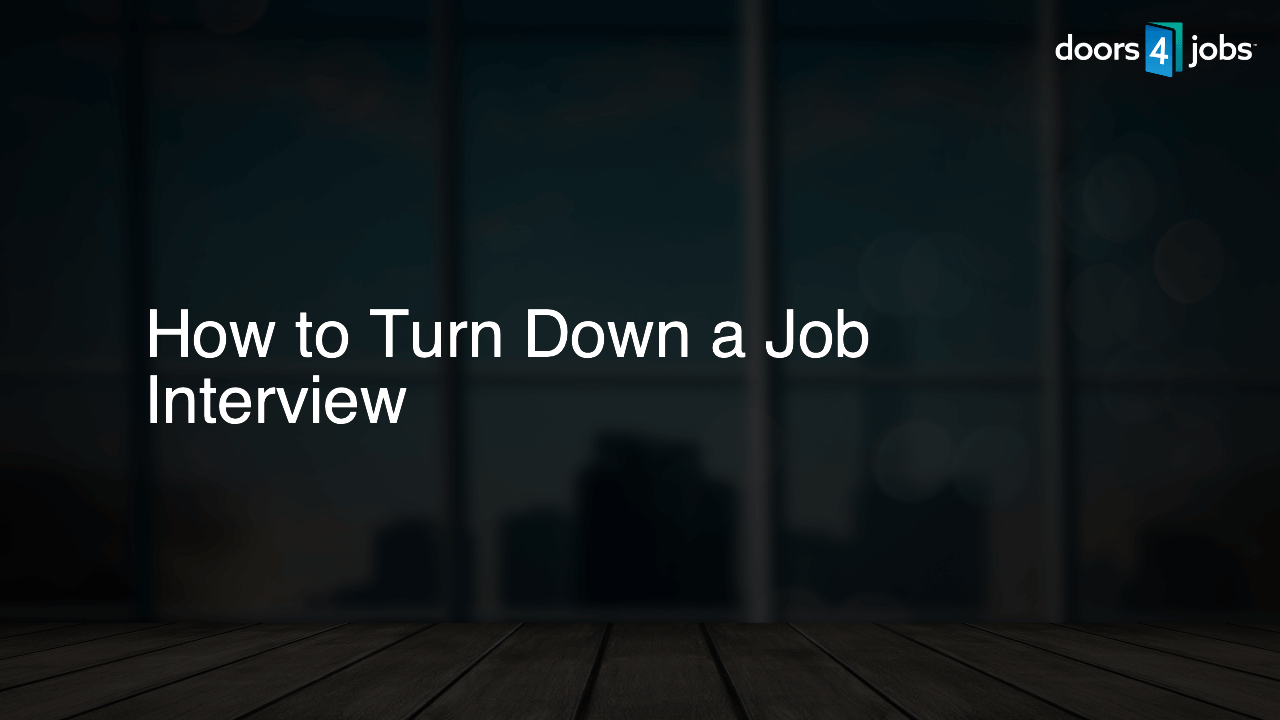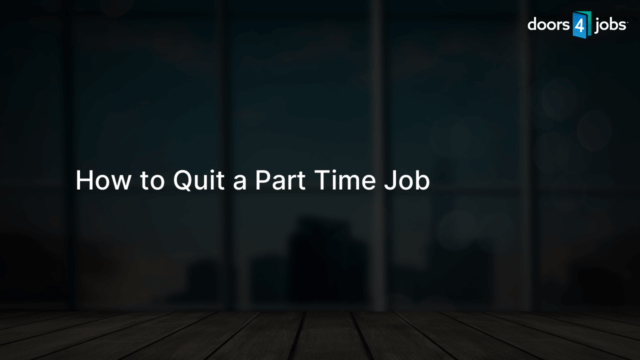When turning down a job interview, communicate clearly and politely to maintain professionalism. Express gratitude for the opportunity, state that you’re declining, provide a brief reason (optional), and wish the company success. This approach ensures a positive impression and keeps potential future opportunities open.
Reasons for Turning Down an Interview
There can be various reasons to turn down a job interview, such as:
- Accepting another job offer
- Realizing the position isn’t a good fit
- Unexpected personal circumstances
- Incompatible work hours or location
Guidelines for Declining a Job Interview
While turning down a job interview, follow these guidelines:
- Be timely – Inform the employer as soon as possible
- Maintain professionalism – Use proper etiquette and language
- Keep the door open – Avoid burning bridges for future opportunities
- Be concise – Provide a brief reason without extensive details
Step 1: Be Timely
As soon as you decide not to proceed with the interview, inform the hiring manager or recruiter promptly. This gives them enough time to find another candidate and reschedule the interview.
Step 2: Maintain Professionalism
Address the recipient with respectful language and use formal tone. Be polite and make sure to proofread your message for errors before sending it.
Step 3: Keep the Door Open
Express your appreciation for the opportunity and thank the employer for considering you. Leave a positive impression, as you never know when another position might arise within the same company.
Step 4: Be Concise
You may provide a brief reason for declining, but it is not necessary to go into extensive detail. Keep it simple and respectful, focusing on appreciation and professionalism.
Sample Email to Turn Down a Job Interview
Subject: [Your Name] - Job Interview DeclineDear [Hiring Manager/Recruiter's Name],Thank you for inviting me for the interview for the [Position] at [Company Name]. I appreciate the opportunity to be considered for the role.However, after careful consideration, I regret to inform you that I will not be able to proceed with the interview. [You may provide the reason here, if you wish].I am grateful for the offer and hope that you find a suitable candidate for the position. I wish [Company Name] continued success and growth.Thank you again for considering my application.Sincerely,[Your Name][Phone Number][Email Address]
Evaluate All Options Before Declining
Before deciding to decline a job interview, thoroughly evaluate the opportunity and weigh all aspects of the position, such as company culture, potential growth, and benefits. List down your priorities and ensure you are making an informed decision. Be sure to consider if other circumstances (such as relocation or starting a new program) are temporary and can be managed.
Consider Requesting a Reschedule or Remote Interview
If you cannot attend the interview due to a scheduling conflict or logistical challenge, consider discussing alternative options with the employer. Ask for the possibility of rescheduling or conducting the interview remotely. Employers usually appreciate your willingness to find an alternative, as long as you communicate it professionally.
Be Aware of Possible Outcomes
By declining a job interview, remember that there might be repercussions. You may miss out on an excellent opportunity or even sideline your chances for future positions in the same company. Assess the potential outcomes in advance and ensure you are comfortable with your decision before proceeding to turn down the interview.
Maintain Good Relationships
Even if you are not moving forward with this particular job interview, maintain positive relationships with the employer. Networking plays a significant role in career growth, and you never know when a connection might come in handy. Be courteous and thank them for their time, even if it may seem insignificant in the present.
FAQ Section: Turning Down a Job Interview
This FAQ section covers the common queries related to declining a job interview professionally and courteously while maintaining healthy connections for future opportunities.
Is it necessary to provide a reason when declining a job interview?
No, it is not mandatory to provide a reason when turning down an interview. While a brief explanation is optional, it is essential to be polite, professional, and express gratitude for the opportunity. Maintain a positive impression in your communication.
Can I change my mind after declining a job interview?
Although it is possible to change your mind after declining an interview, this might not be well-received by employers. However, if you reconsider and wish to proceed, reach out to the employer immediately, explain your situation honestly, and ask if the opportunity is still available. Note that it may not be possible to receive another interview invitation.
Does declining a job interview burn bridges with a company?
Declining a job interview does not necessarily burn bridges with a company as long as you handle it professionally and courteously. Communicate clearly, express gratitude, and leave a positive impression. This approach helps preserve the relationship and keep potential future opportunities open.
Should I reconsider a job interview before declining due to inconvenient timings or location?
If the concern is only about scheduling or location, discuss alternative options with the employer before declining the interview altogether. Ask for the possibility of rescheduling the interview or conducting it remotely. Employers are usually open to alternatives if you demonstrate your interest and commitment professionally.
What are some of the potential outcomes of declining a job interview?
By declining a job interview, you may miss out on a valuable opportunity or even affect your chances for future positions within the company. Assess the potential outcomes before making a final decision, ensuring you are comfortable with your choice and have weighed the pros and cons.











